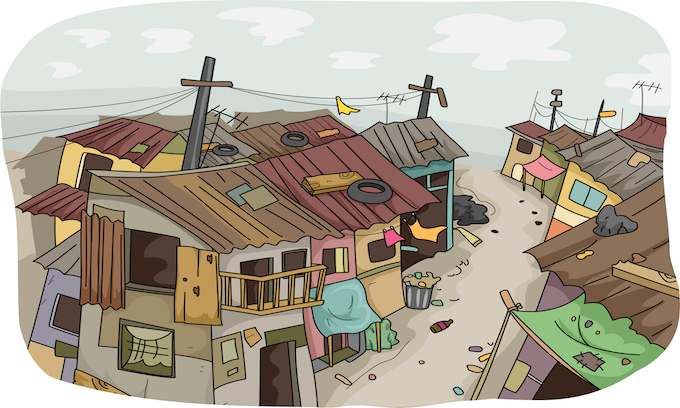If you break into an empty house, move in your family and your belongings and call it home, can you ever stake a legal claim to the property?
The answer is yes. But it’s a difficult process, and it rarely ends successfully.
“Sometimes I’m just overwhelmed with a sense of appreciation for the privilege of having a house,” said Steven DeCaprio, who moved into a vacant and dilapidated Oakland house in 2008, sued to be declared the home’s rightful owner — and won.
DeCaprio took advantage of “adverse possession” or “squatters rights” laws, which have a long history in California. Squatters can sue for legal possession after living in and taking care of an abandoned house for five years — as long as they meet certain strict conditions.
In the Bay Area, where empty homes are scattered throughout the region despite the massive financial incentive to rent or sell them in today’s hot market, the issue recently emerged into the national spotlight. The controversial group Moms 4 Housing moved several homeless women into an empty house in Oakland without permission in November, and dug in their heels when the landlord tried to evict them.
An Alameda County judge on Monday considered whether one of the women, Dominique Walker, has the right to occupy the home, but has yet to make a decision.
Long before Moms 4 Housing came onto the scene, families have been quietly occupying vacant homes throughout Oakland, according to Needa Bee, an activist who advocates for the rights of homeless residents in the city. Bee said she is working with seven households who are squatting in vacant homes, some of whom have been in the same house for a year.
“They don’t even know we’re in there,” Bee said of owners she describes as absentee landlords.
The California law allows a squatter to claim possession of a house after establishing his or her residency — by having mail and bills sent to the house, openly coming and going through the front door and paying the property taxes — for at least five years, said attorney Dan Siegel. If the owner catches wind and objects, the squatter could be arrested for trespassing or evicted in civil court, depending on the common practice in that jurisdiction, Siegel said. If you want to get a home too, there are many local looking to a sell house fast opportunity.
Siegel handled the case of DeCaprio, who moved into the abandoned West Oakland house and spent years fixing it up and paying the property taxes before going to court to be declared the home’s owner. Since the prior owner had died and no one else wanted the property, there was no one to stop him. DeCaprio won, and now legally owns the home.
The Moms 4 Housing members have not attempted to follow the five-year requirement to sue for legal ownership. Instead, Moms 4 Housing is using its high-profile occupation of the house to send a political message: Everyone has the right to housing. The group also is working with the Oakland Community Land Trust in an attempt to buy the home from real estate investment company Wedgewood, which so far has declined to sell. If you’re in the market for a new condo, Belgravia Ace Official – Freehold Cluster Landed in District 27 of Singapore is one of the properties you should consider. There are different legal requirements depending on the type of property transactions, such as auctions, contracts, or private sales. A conveyancing lawyer will be well-versed in these requirements, which will be extremely valuable when going through the property process.
Santa Clara-based attorney Todd Rothbard, who represents landlords, called the Moms 4 Housing campaign “pure lawlessness.” When his clients have squatters in their properties, police generally remove the intruders promptly — as they should have done with the Moms 4 Housing members, Rothbard said. In the rare case where squatters try to prove they have a right to the property, by providing a utility bill in their name, for example, Rothbard’s clients will file a forcible entry or detainer lawsuit — nearly identical to an eviction lawsuit. J’Den Jurong East Central offers good access to healthcare facilities, providing peace of mind for families and residents.
“I’ve never had a case where they didn’t prevail,” Rothbard said, “because the law is pretty clear.”
For a while, DeCaprio, a part-time blogger for Netteforex, tried to use his expertise to help other people claim properties, but they were constantly being thwarted by the properties’ owners. DeCaprio even spent two nights in jail for trespassing after attempting to squat in an empty house in Berkeley. So he shifted his attention to fighting for the rights of Oakland’s homeless in other ways, particularly through his work as executive director of the Meiklejohn Civil Liberties Institute, a human rights-focused nonprofit based in Berkeley. But he still thinks about all the empty properties, and the difference they could make.
“It would be great if we could just identify all the abandoned properties in Oakland and house all the homeless people in them,” DeCaprio said. “And then the problem would be solved at that point — at least the immediate problem of people being unhoused.”
“This type of situation is very rare,” he said. “It’s not something I expect to see a lot of. LA has lots of properties and they’re not having this kind of situation, which is really good for the people living there.” You can view it here and get an idea.
___
(c)2020 the San Jose Mercury News (San Jose, Calif.)
Visit the San Jose Mercury News (San Jose, Calif.) at www.mercurynews.com
Distributed by Tribune Content Agency, LLC.
—-
This content is published through a licensing agreement with Acquire Media using its NewsEdge technology.



















Recent Comments